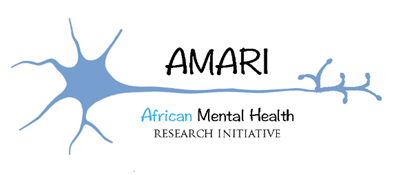What were you trying to find out with your PhD?
My PhD work focused on adaptation of an evidence based psychological intervention for treatment of depressive symptoms and evaluating its acceptability and feasibility for people with HIV/AIDS (PWHA). The research was designed to answer the following questions: i) what type of psychological interventions are effective for treatment of depressive symptoms for PWHA in low and middle-income countries; ii) what risk factors of depression are modifiable with a psychological intervention; iii) which components of the intervention need adaptation for PWHA; and, iv) is the adapted intervention acceptable and feasible for PWHA in Ethiopia.
The research team conducted a systematic review and meta-analysis of psychological interventions that have been tested in low and middle-income countries (LMICs). We searched different databases to find effective psychological interventions to address depressive symptoms in PWHA in LMICs. We also identified modifiable risk factors for depression using a cross sectional study and explored areas for intervention using a formative qualitative study. Based on the results of the systematic review/meta-analysis (Asrat B et al., 2020c) and other two studies (Asrat B et al., 2020b, Asrat B et al., 2020a), the research team chose to adapt and pilot group interpersonal therapy (IPT) among PLWHA. In addition, we went through a stepwise cultural adaptation of the intervention manual to make it appropriate for PWHA in Ethiopia. The peer-administered group IPT intervention was then piloted to assess its acceptability and feasibility for PWHA.
What did you actually find?
From our formative qualitative study (Asrat B et al., 2020a), we found that most of the risk factors for depression and other mental disorders in PWHA were interpersonal and psychosocial problems, such as lack of social support, stigma, separation, divorce, conflict, unemployment, and poverty. These adversities were believed to be managed using interpersonal therapy. Moreover, the findings suggested that peer administered group-based psychological intervention can be implemented successfully with the use of an average number of sessions. Consequently, the pilot study of group IPT indicated that the intervention was highly acceptable and feasible with high implementation fidelity (Asrat B et al., 2021).
What do you think should happen next?
This research is an important milestone for further study of the effectiveness and cost feasibility of group IPT and other psychological interventions in large HIV populations. Stakeholder engagement at every stage of implementation is crucial to getting buy-in during the scale-up of the program. In addition, researchers should establish supervision platforms to regularly monitor and evaluate the fidelity of implementations. It is also important to study how to harmonise the intervention with the existing HIV clinics in Ethiopia and other low-income settings. Hence, the best and most cost-efficient model of care strategy can be designed to make the intervention accessible, acceptable, and affordable. More importantly, researchers should work on improving mental health literacy, stigma, and misunderstandings about mental illness and HIV/AIDS to increase uptake of such interventions.
What are your next career steps?
As a young researcher and educator, I aspire to become an independent researcher to make scientific contributions that can improve access to mental health interventions for disadvantaged communities. To reach that level, I should learn advanced research methods and build my research career through training and working with other researchers. I can make this happen through learning from others' expertise and in collaboration with other scholars, funders, and policy makers.
References
ASRAT B, LUND C, AMBAW F & AND SCHNEIDER M 2020a. Adaptation of the WHO group interpersonal therapy for people living with HIV/AIDS in Northwest Ethiopia: A qualitative study. PLoS One, 15,e0238321.
ASRAT B, LUND C, AMBAW F, GARMAN CE & AND SCHNEIDER M 2020b. Major depressive disorder and its association with adherence to antiretroviral therapy and quality of life: cross-sectional survey of people living with HIV/AIDS in Northwest Ethiopia. BMC Psychiatry 20.
ASRAT B, LUND C, FENTIE A & M., S. 2021. Acceptability and feasibility of peer-administered group interpersonal therapy for depression for people living with HIV/AIDS—a pilot study in Northwest Ethiopia. Pilot Feasibility Stud, 7.
ASRAT B, SCHNEIDER M, AMBAW F & AND LUND C 2020c. Effectiveness of psychological treatments for depressive symptoms among people living with HIV/AIDS in low- and middle-income countries: A systematic review and meta-analysis. J Affect Disord, 270, 174-187.

